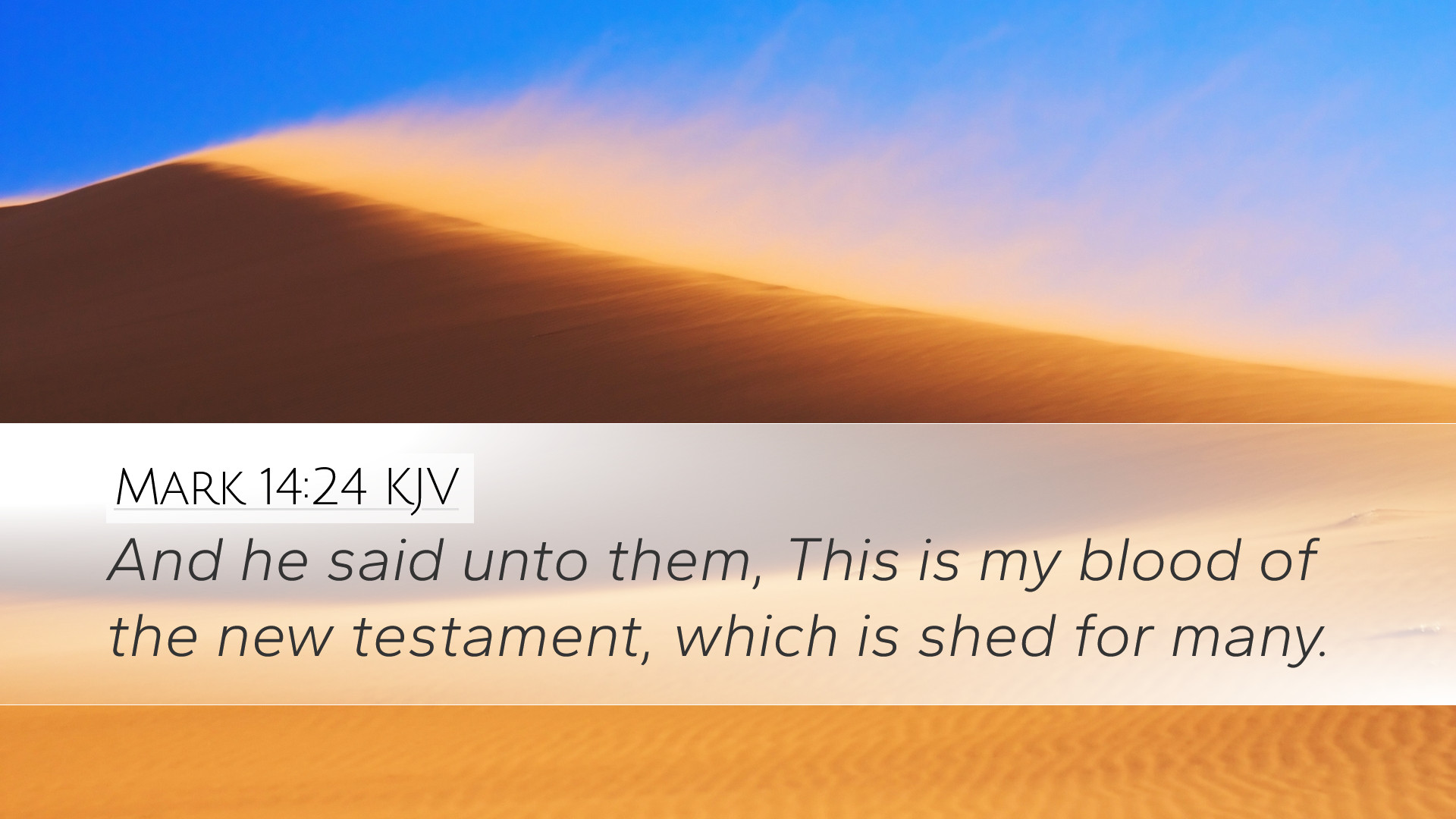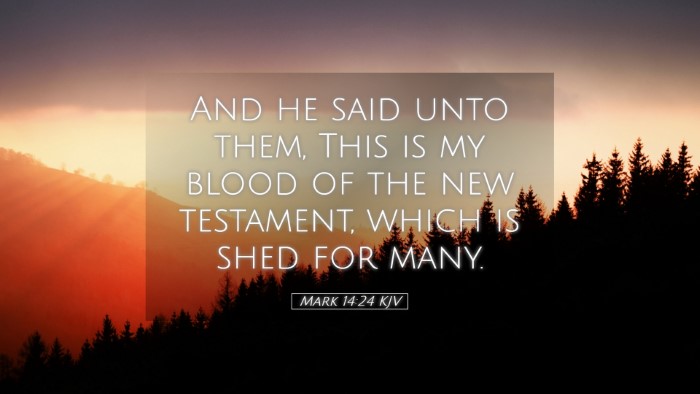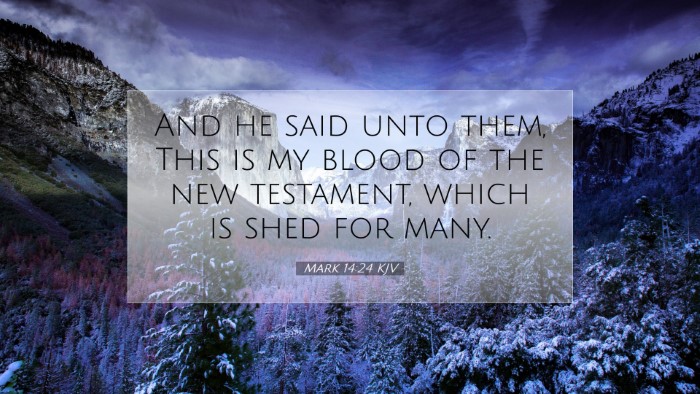Commentary on Mark 14:24
Mark 14:24 states, "And he said unto them, This is my blood of the new testament, which is shed for many." This verse is pivotal in Christian theology, encapsulating the essence of the New Covenant established through the sacrifice of Jesus Christ. The significance of the statement made by Jesus at the Last Supper has been explored by many theological scholars and is the focus of various public domain commentaries.
Historical Context
The Last Supper occurs during the Passover when Jews commemorate their deliverance from Egypt. In this setting, Jesus reinterprets the Passover meal, introducing the bread and wine as symbols of His body and blood, thus establishing a new testament.
Matthew Henry's Commentary
Matthew Henry emphasizes the profound nature of the statement, noting that Jesus' reference to His blood signifies the sacrificial nature of His impending death. Henry observes:
"The blood of the new testament, which is shed for many, is intended to affirm the establishment of a new covenant that supersedes the old one, grounded in the grace of God rather than the law."
This reflection highlights the transition from the Old Covenant, which was marked by sacrifices and law, to the New Covenant centered on grace and redemption through faith in Christ.
Albert Barnes' Insights
Albert Barnes expounds on the theological implications of Jesus' words regarding the New Covenant. He notes:
"The new testament here mentioned signifies a new arrangement or covenant between God and man. This covenant is established through the sacrifice of Christ's blood, and it encapsulates the promise of salvation for all people."
Barnes conveys that Christ’s blood is not merely a symbol but rather the actual means for redemption, underscoring the universal significance of His atonement for 'many' - pointing towards the doctrine of limited atonement versus the general atonement debate within various theological circles.
Adam Clarke’s Perspective
Adam Clarke provides additional theological depth to the idea of the New Testament, linking it to the prophecies of the Old Testament. Clarke states:
"The new covenant foretold by the prophets symbolizes a new heart and a renewed spirit, given through the blood of Christ, which instills a compliance with God's will that the law alone could not produce."
Clarke's observation connects the new covenant directly to the transformative work of the Holy Spirit in believers’ lives. It emphasizes the relational aspect of this covenant, where, through Christ's sacrifice, believers gain not only forgiveness but also the power to live righteously.
The Eucharistic Significance
The institution of the Lord's Supper is not merely a historical event; it establishes a continuous practice within the Christian faith. The elements of bread and wine embody Christ's body and blood, symbolizing the communion believers have with Christ.
- Representation of Sacrifice: The blood points to the sacrificial nature of Jesus' mission.
- Community and Remembrance: It also serves to unify believers as they participate in this act of remembrance.
- Spiritual Nourishment: Just as physical food sustains the body, the body and blood of Christ sustain the spiritual life of believers.
Theology of Suffering and Atonement
Mark 14:24 invites theological reflection on the themes of suffering and atonement. By referring to His blood, Jesus anticipates the suffering He will endure, not only as a physical death but as spiritual separation that bore the sins of humanity.
He expounds upon the necessity of His suffering in establishing the new covenant, fulfilling Old Testament prophecies about the Servant who would be "pierced for our transgressions" (Isaiah 53:5).
Conclusion
Mark 14:24 captures the crucial moment when Jesus reveals the heart of His mission and the purpose of His coming. The establishment of the New Covenant through His blood invites believers into a new relationship with God—a relationship based on grace, forgiveness, and the transformative power of the Holy Spirit.
As pastors, students, theologians, and Bible scholars meditate on this pivotal verse, they are reminded of the essential truths of the gospel and the ongoing call to share this message of hope and redemption with others.


